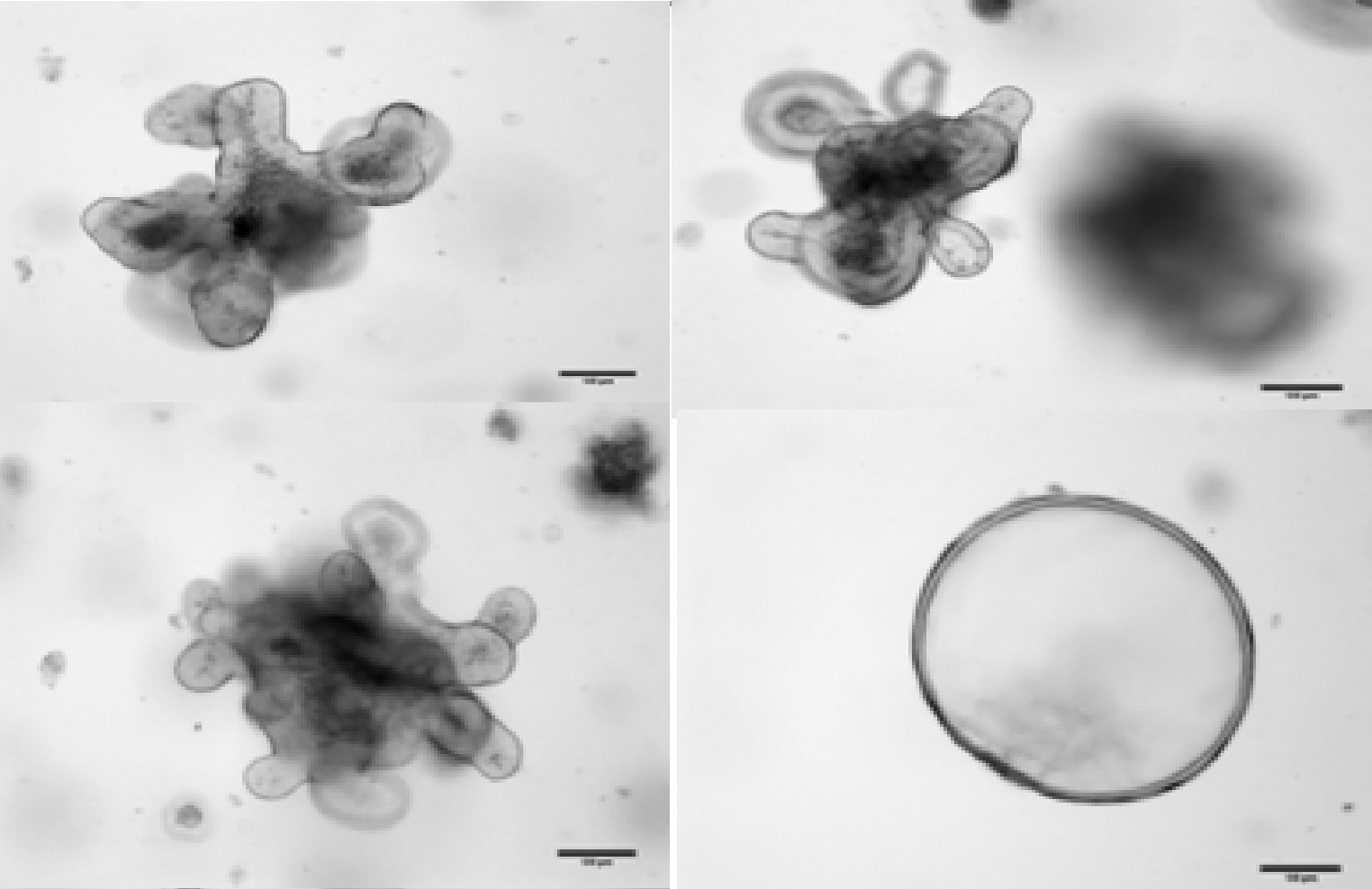Researchers at the Institut Pasteur de Montevideo are using stem cells to generate ‘mini-intestines’ that grow in laboratory vessels to investigate intestinal diseases that affect animal and human health.
The development of miniature organs in the laboratory – known as organoids – has been possible in recent years thanks to advances in knowledge and technology linked to stem cells. Unlike cells specific to each organ or tissue – muscle cells, neurons, blood cells, etc. – stem cells are found in most of the body’s tissues and have the capacity to give rise to different types of cells.
This biological mechanism helps the body to maintain tissues or repair them in case of damage, said Mariela Bollati, a researcher at the Cell Biology Unit (UBC) of the Institut Pasteur de Montevideo, in a video that belongs to a cycle of scientific dissemination produced by the Axon communication agency.
Because of this ability of stem cells, science has sought ways to use them to create these miniature organs, which are ‘like three-dimensional sculptures that mimic the structure and function of organs, and can also be grown in laboratory vessels’, said Romina Pagotto, a research associate at UBC.
Scientists can use organoids as models to study their formation and function and to understand how diseases develop in these organs, how drugs work, and also to reduce the use of animals for experimentation. ‘For example, we can create organoids from healthy cells or also from cells with some mutation, which causes a disease, and thus infer what happens in the tissue’, Pagotto emphasized.
On this basis, UBC in conjunction with the Program for Molecular, Cellular and Animal Technology (ProTeMCA) is pursuing a project that uses stem cells to generate mini-intestines, which can be used as study models in the laboratory for:
- understanding the mechanisms involved in the pathogenesis of Chagas disease, produced by the Trypanosoma cruzi parasite. Mini-intestines are infected with the parasite to study where and how it replicates (in collaboration with the laboratory directed by Dr. Marcelo Comini).
- studying zoonotic enteric diseases that affect agricultural production and endanger the health of the environment, animals and humans. For example, toxoplasmosis, whose causal agent is Toxoplasma gondii (in collaboration with the laboratory headed by Dr. María Eugenia Francia).
The complete series of videos called ‘What if I told you…’ can be viewed here.


